The UK automotive sector has suffered its worst March new car registrations result since 1998, with Society of Motor Manufacturers and Traders (SMMT) chief executive Mike Hawes stating that it “lays bare the challenges ahead”.
Registrations declined by 14.3% year-on-year to 243,479 units in the car retail sector’s key number plate change month to leave Q1 registrations down by 1.9% despite a rollback of the COVID-19 pandemic restrictions experienced by the sector at the start of 2021.
The SMMT this morning (April 5) highlighted that it was the worst March performance since the introduction of the two-plate system and expressed concerns about the outlook for the year, given that around 20% of total annual registrations are usually recorded in the month.
 SMMT chief executive Mike Hawes said: “March is typically the biggest month of the year for the new car market, so this performance is deeply disappointing, and lays bare the challenges ahead.
SMMT chief executive Mike Hawes said: “March is typically the biggest month of the year for the new car market, so this performance is deeply disappointing, and lays bare the challenges ahead.
“While demand remains robust, this decline illustrates the severity of the global semiconductor shortage, as manufacturers strive to deliver the latest, lowest emission vehicles to eagerly awaiting customers.
“Placing orders now will be beneficial for those looking to take advantage of incentives and lower running costs for electric vehicles, especially as the Ukraine crisis could affect supply still further.
“With increasing household and business costs, government must do all it can to support consumers so that the growth of electric vehicles can be sustained, and the UK’s ambitious net zero timetable delivered.”
Market forces
AM recently highlighted the impact of Russia’s invasion of Ukraine in a special news insight report.
The conflict has ended many car retailer’s hopes of a return to free-flowing vehicle supplies in 2022 following ongoing issues with the supply of components, including semiconductor microchips, to the sector’s OEMs.
The SMMT suggested that March’s continued registrations decline “underscores the long-term impact the pandemic is wreaking on the industry”.
Car retailers’ order books remain full, with many dealers telling AM that consumer demand has remained resilient as soaring inflation out the squeeze on household finances.
However, private registrations grew by just 8.2% last month, despite showrooms having remained closed during the March 2021 trading period as a result of social distancing regulations.
Large fleet registrations declined by 34.4% but business registrations grew by 20%.
Tesla top the charts
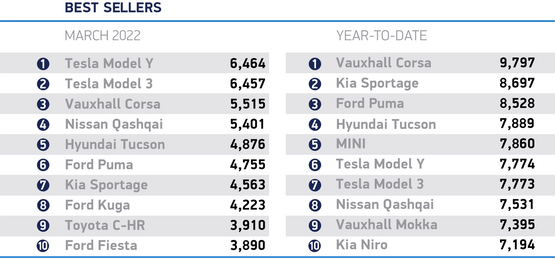
Electric vehicles (EVs) continued to enjoy growth, with the Tesla Model Y topping the best-seller rankings and the Tesla Model 3 finishing second, almost 1,000 units ahead of the Vauxhall Corsa.
EV registrations rose 78.7% overall, to 39,315, as zero-emission models secured a 16.1% market share.
This is the highest volume of BEV registrations ever recorded in a single month, the SMMT said, with more EVs registered in March 2022 than during the entirety of 2019.
Plug-in hybrid (PHEVs) registrations declined by 7.5% to 16,037 units, but hybrids (HEVs) grew 28.4% to 27,737 units.
This means that comprised more than a third (34.1%) of all new car registrations.
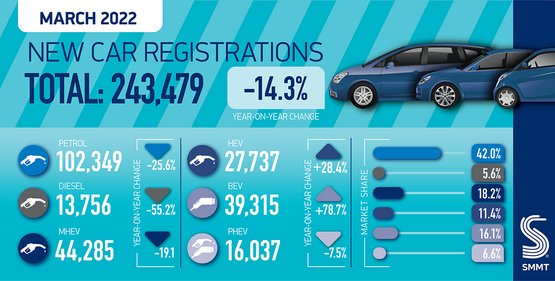
Commenting on the March registrations data, National Franchised Dealers Association chief executive, Sue Robinson, said: “Cost of living increases are impacting customer decision making and it is vital that the Government supports UK households as inflation rises. Despite this, there are offers that motorists can benefit from.
“Vehicle servicing departments continue to be busy and franchised dealers are working hard to ensure quality of service, customer value and support in the aftersales market.
“On a positive note, sales of electrified vehicles performed very well in March, accounting for more than one in three new cars registered; we expect this trend to continue as brands introduce new models and retailers help customers choose their next EV."
> DATA: new car registration figures
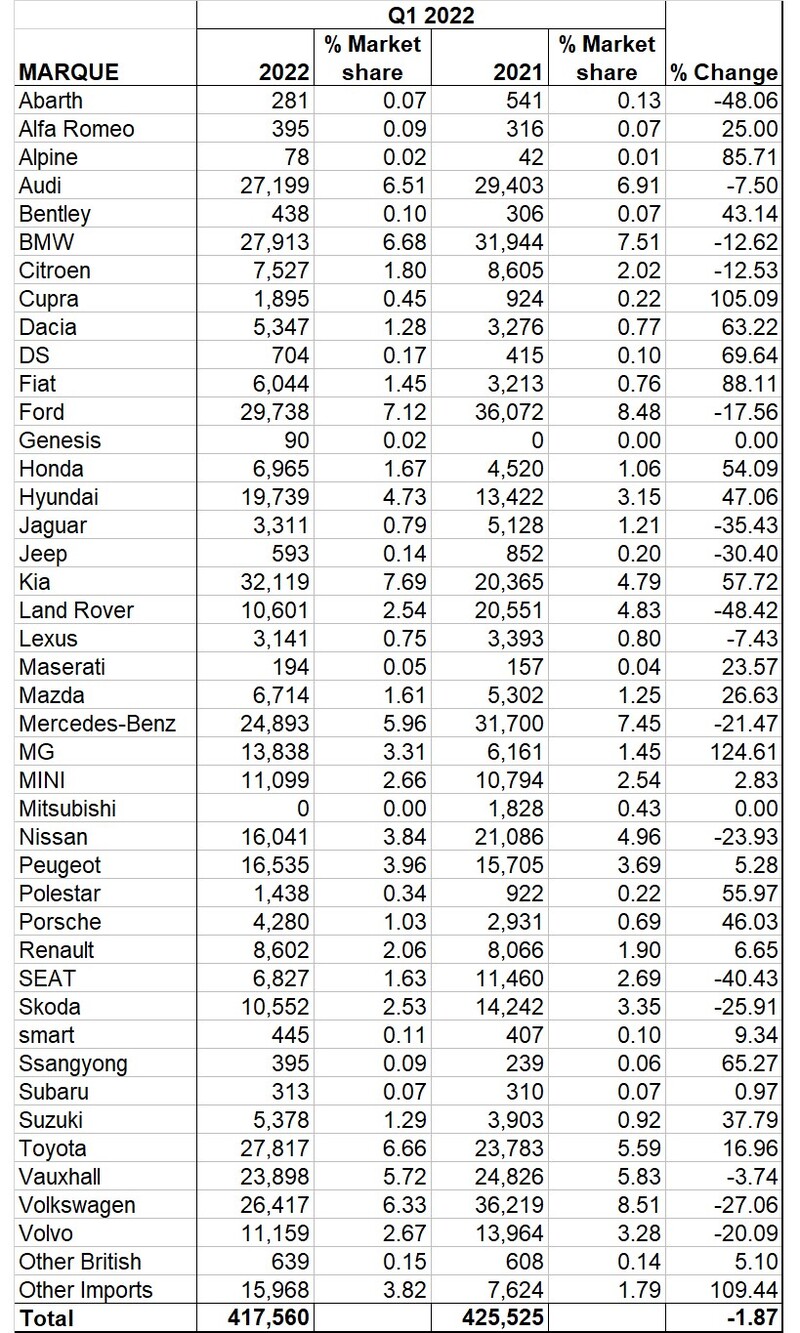
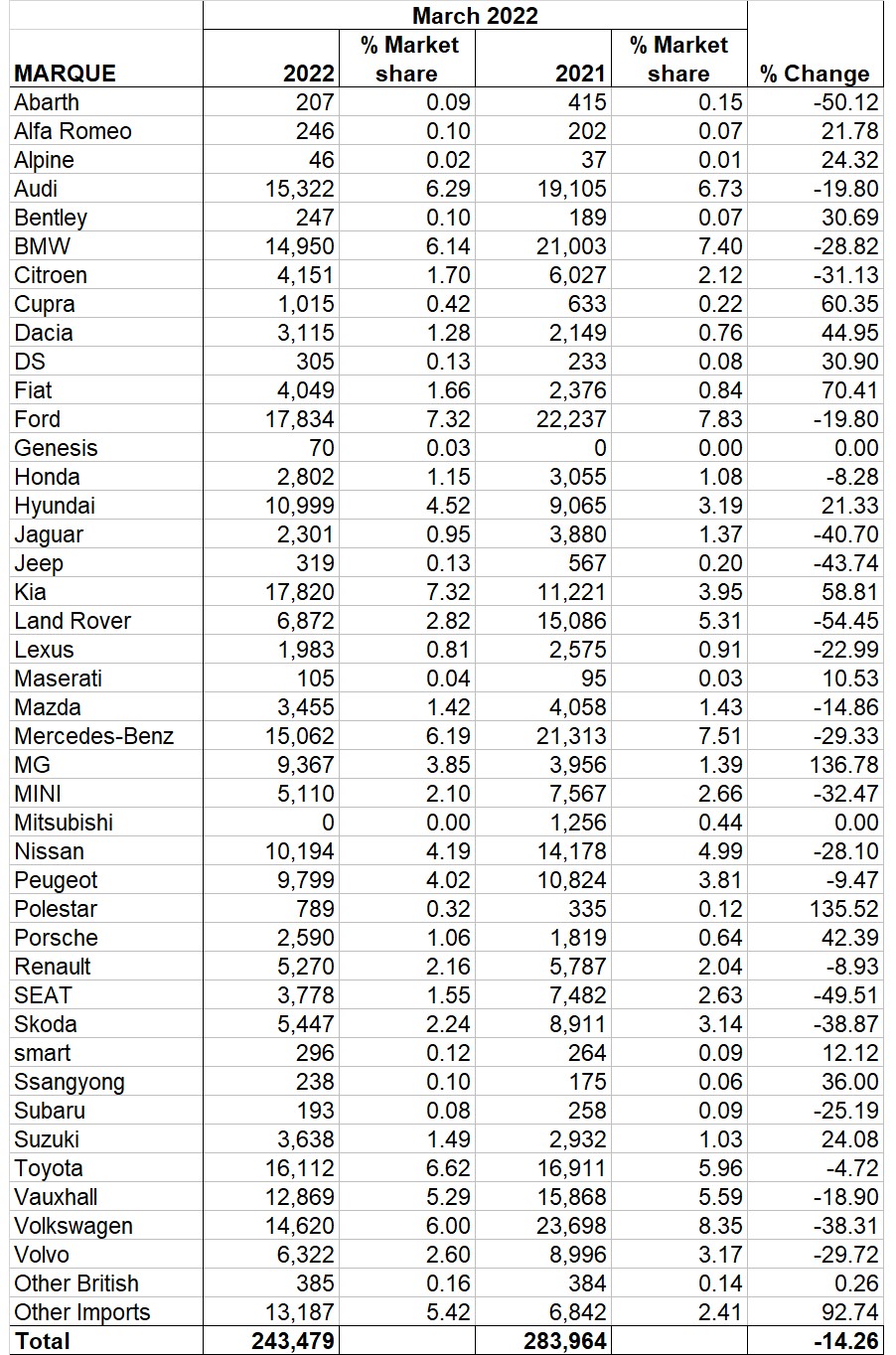

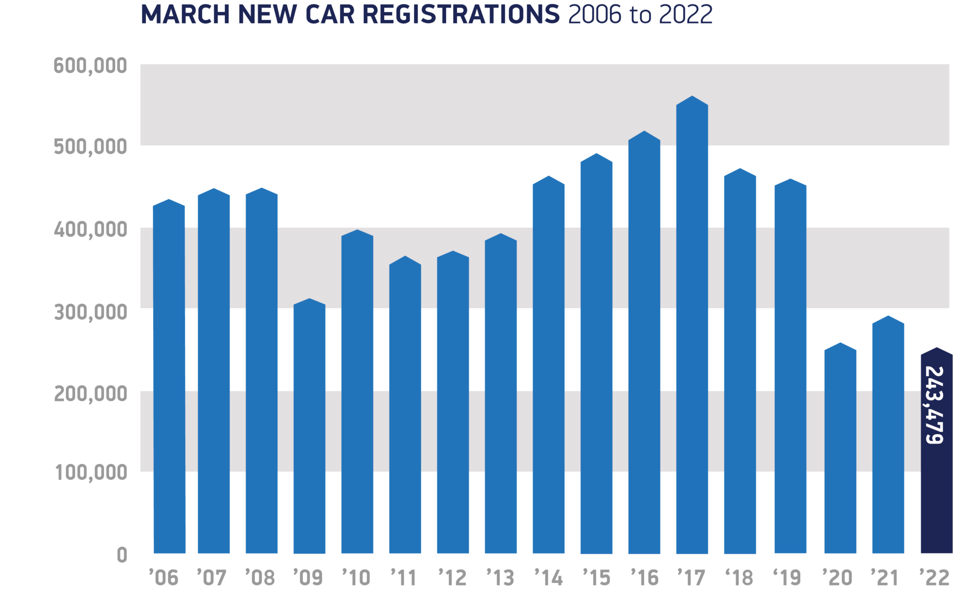













Login to comment
Comments
No comments have been made yet.